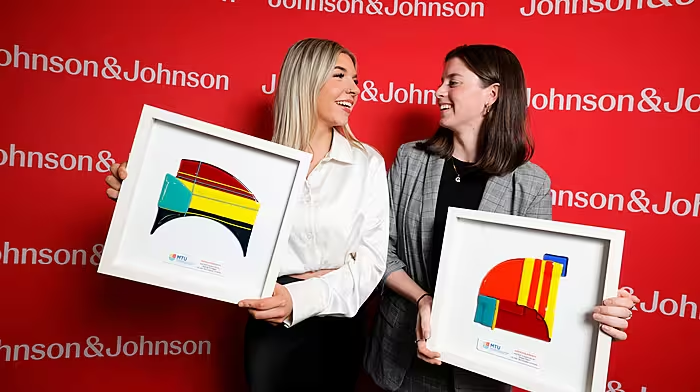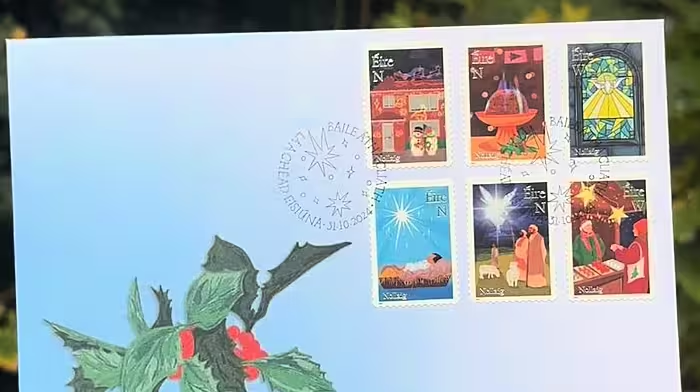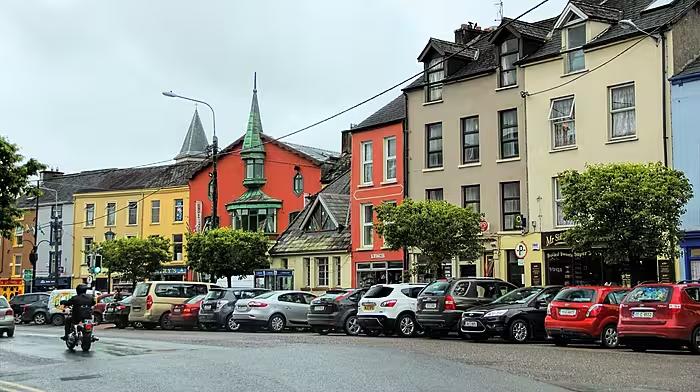Irish Agriculture Minister Michael Creed made his debut appearance at the informal Farm Council in the Dutch cities of Eindhoven and Amsterdam earlier this week.
IRISH Agriculture Minister Michael Creed made his debut appearance at the informal Farm Council in the Dutch cities of Eindhoven and Amsterdam earlier this week.
When Ireland was basking in glorious sunshine, Creed and his ministerial colleagues were braving torrential rain on a high-tech dairy farm – including a couple of robots to help at feeding-time. Speaking to reporters in the margins, the Macroom man said the future of agriculture was in ‘sustainable intensification’ – the idea of producing more food, while using fewer resources.
At a time of global population growth – expected to reach over 9 billion people by 2050 – farmers must not reduce agricultural output, he said. Referring to the current crisis in the dairy and pigmeat sectors, he said he was ‘looking at every option available.’
Price volatility was expected in the post-quota market, he said, conceding that the current situation is far more protracted than expected. He said Ireland was also pushing the Commission to get rid of tariff duties on fertilisers, which hike up the price of imports from the likes of Russia and North Africa. These additional input costs are putting even more pressure on farmers, he said.
A number of countries including the Baltic States, Finland and Germany have called on the Commission to activate the so-called annual crisis reserve – worth over €400 million for 2016. The crisis reserve, financed by a small reduction in direct payments on all farmers across Europe, has remained untouched until now, but Creed is against the move, as it would ‘prove divisive among the farming community,’ as tillage and beef farmers would have to compensate dairy and pigmeat farmers.
In terms of the current dairy crisis, the finger is often pointed to countries such as Ireland, the Netherlands and Denmark that have vamped up production since the end of dairy quotas in April 2015, leading to oversupply on the market and the fall in prices. But, Creed challenged this narrative, saying Ireland’s dairy farmers only make up 4% of European production and roughly 1% of global production.
He said it was clear 30 years of capacity restrictions held back Irish farmers, who have a natural cost advantage as the herd is pasture-fed. Referring to the voluntary measure tabled by the Commission to reduce dairy output to address oversupply on the market, Creed said such a move would run counter to widespread on-farm investments and capacity expansion. Putting a handbrake on milk production would be a gift to our competitors worldwide,’ the former dairy farmer added.
Meanwhile, US Ambassador to the EU Anthony Gardner accused Farm Commissioner Phil Hogan of spreading a ‘series of misleading statements’ regarding the US engagement in agricultural issues in bilateral trade talks, saying his comments were “not conducive to the negotiations”. In a strongly-worded email, circulated among the EU-28 ambassadors on May 25th, Gardner said Hogan’s public comments ‘only serve to inflame the opinions of important US agricultural groups, as well of legislators in Congress.’
Gardner describes the missive as an ‘unusual step’ for him to take, but would like to see differences of opinions that are ‘natural, especially on tough issues like agriculture … (to be) aired privately, rather than in the public arena.’ But the Kilkenny man stands over the comments, with his aides saying the ‘US Administration does not yet seem to be in a place where it can reciprocate the EU’s efforts in bilateral trade talks and to start delivering on matters of EU interest.’
In the past, President Barack Obama said he would like to secure a bilateral trade deal before he leaves office, but as we are already into the month of June, this now looks highly unlikely.
* Rose O’Donovan is the Editor-in-Chief of the Brussels-based publication AGRA FACTS & a regular contributor to the video platform www.vieuws.eu







